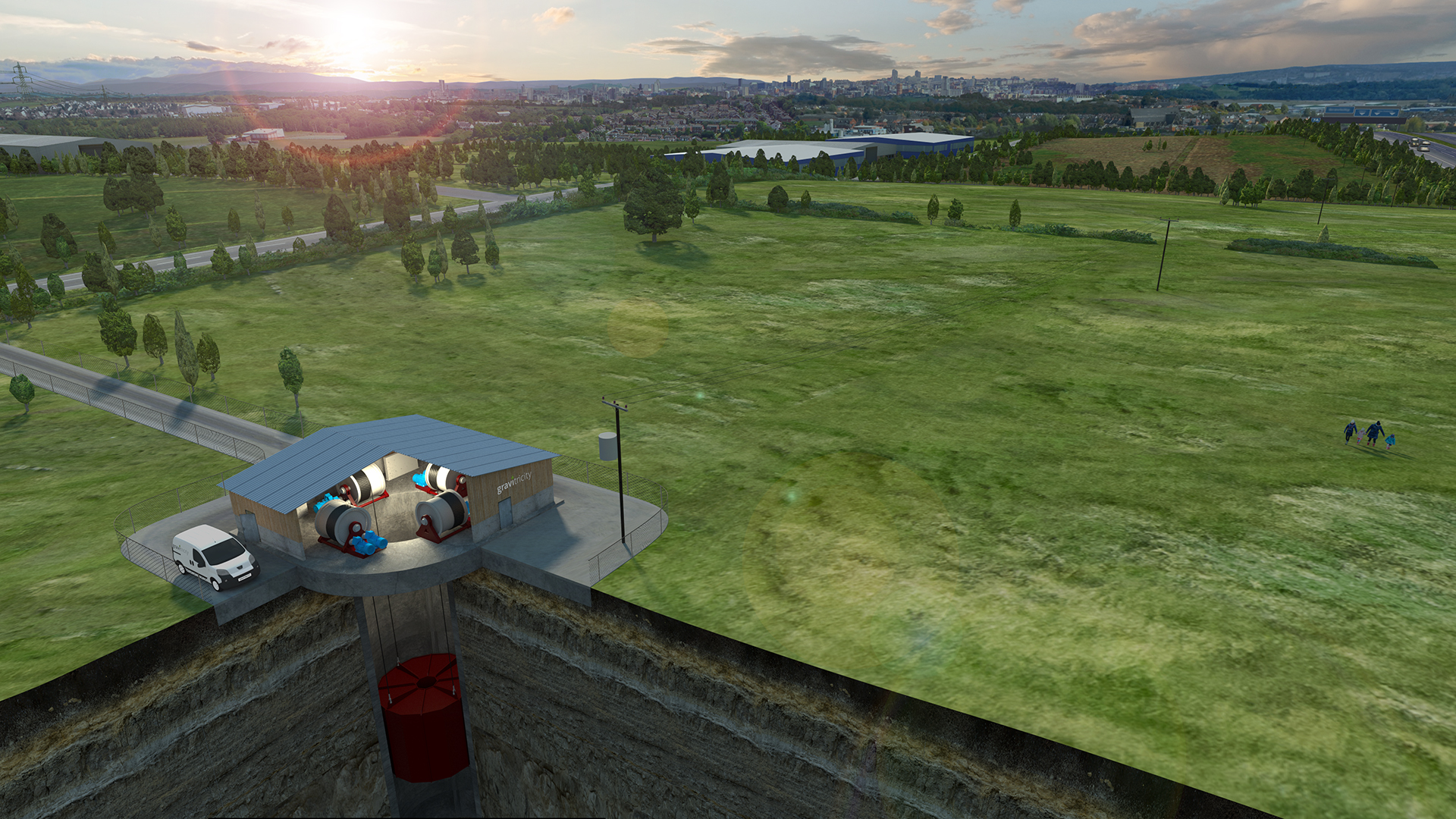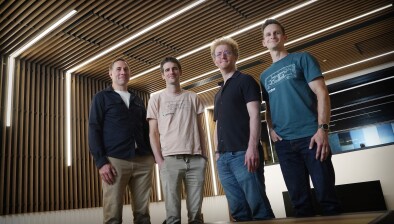Gravitricity secures £194,000 contract to explore Indian energy storage market

Chris Yendell (Photo: Neil Davidson Limited)
Scottish energy storage specialist Gravitricity has secured £194,00 from the UK government to find a demonstration site in India suitable for its gravity energy storage technology.
Gravitricity has developed an innovative energy storage system which works by raising heavy weights – totalling up to 12,000 tonnes – in a deep shaft and then releasing them when energy is required.
It could be ideally suited to India, which has set a target to instal over 500GW of renewables by 2030, up from 100GW in 2021, to supply its fast-growing economy. This rapid increase in variable renewable generation – much of it solar – will bring with it a need for energy storage.
Analysts calculate Gravitricity’s system – which can operate for up to 50 years – can store energy at half the cost of lithium-ion batteries – and already the green tech pioneers are planning to install their invention in decommissioned mineshafts and custom-built shafts in the UK and mainland Europe.
The Edinburgh firm has now partnered with India energy specialists Panitek Power in the 12-month project to identify a shortlist of sites for a demonstration scheme.

Chris Yendell, project development manager at Gravitricity, said: “India has very few fossil fuel resources and is committed to adopting renewables to fuel its economic growth. Solar power is extremely cheap in such a sunny country but brings with it a need for energy storage to meet peak morning and evening demand, both of which typically occur during the hours of darkness.
“With the introduction of renewable energy generation at this scale, new flexible storage services will be essential to ensure the grid continues to operate in a stable manner. Gravitricity’s versatile technology is ideally placed to deliver the balancing services required to achieve this stability.
“It is also a relatively simple technology. It doesn’t rely on any rare earth metals, and has a very long lifespan, meaning it can be manufactured and deployed locally alongside vast amounts of new grid infrastructure which will also be required to meet the rapid growth in demand.”
Gravitricity will rely on the in-country expertise of energy specialists Panitek Power, who will work with local partners to identify sites and supply chain firms to deliver a specific proposal which could be built in the near term.
Parag Vyas, chief commercial officer at Panitek Power, added: “India has an immediate and growing need for energy storage technologies. In many locations there is little or no grid, and it makes sense to integrate energy storage within their evolving infrastructure to cope with intermittent generation.
“In addition, as a country’s share of renewables rises, this can cause frequency and voltage disturbances in the existing grid due to a mismatch of load demand and generation. Gravitricity’s technology has a response time of less than one second and can be cycled thousands of times, making it ideally suited to grid balancing and rapid frequency response services.”
The project is being supported by the Energy Catalyst Round 9 – Early Stage competition. In this scheme Innovate UK, part of UK Research and Innovation, will work with the Foreign Commonwealth and Development Office (FCDO) and the Department for Business, Energy and Industrial Strategy (BEIS) as part of the Ayrton Fund to invest up to £20 million in innovation projects which will accelerate the innovations needed to create new or improved clean energy access in sub-Saharan Africa, South Asia or Indo-Pacific regions.







